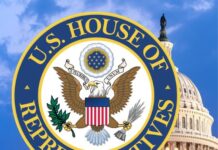
Last week it was announced that the FCC would hold a hearing regarding the license renewal of Entercom’s KDND in Sacramento. The hearing was prompted by a station contest that lead to the death of a listener. On Friday, Entercom CEO David Field issued a statement (see next story). Today we turn to broadcast attorney John Garziglia to get his thoughts on this hearing, which way it might go and what managers should do regarding their contests and contest rules.
Radio Ink: Were you surprised by the FCC’s decision to hold a hearing?
Garziglia: It is a surprise any time in the past two decades that the FCC designates a radio station renewal application for hearing. In the mid-1980s, I served as FCC Hearing Bureau Counsel in a license renewal hearing based upon EEO issues at a time when radio license renewal hearings on various issues were more prevalent. Since that time, the designation of radio station license renewals for hearing has been reserved for instances of convicted pedophiles and the like, not contest rule violations. Indicative of the lack of recent hearings is that the FCC now has just one administrative law judge to conduct such hearings.
Radio Ink: – How can something take so long? How can this hang over a station ten years later?
Garziglia: Most FCC licensees have stories of applications being held up in the Commission’s processes for years. The length of time will come as no surprise to Radio Ink readers. I suspect that there has been an ongoing debate within the FCC’s staff for years as to what was to be done about this on-air event that resulted in death, with the central question being whether the tragedy merits the ultimate punishment of the loss of the radio station’s license. Notably, there were no dissents among the Chairman and the four Commissioners to this Hearing Designation Order.
Radio Ink: Do you recall other cases similar to this? Ones where a contest (could) cost a station a license?
Garziglia: The WMJX-FM, Miami license renewal hearing (https://digital.library.unt.edu/ark:/67531/metadc306570/m1/271/) in the 1970s with its Devil’s Triangle contest comes immediately to mind.
Radio Ink: David Field wanted to get out a statement that this was rogue employees. The FCC document pretty much details how the hosts changed the contest as it was happening. What do you think of that defense?
Garziglia: Every radio station on-air staff, to the extent that radio stations continue to have such on-air staffs, has a certain culture. With some station air-staffs, everything is strictly business. With other radio stations, the success of the station depends upon the creative fun and wacky culture of its on-air staff. It is station management’s responsibility to recognize the culture of the on-air staff and fashion appropriate safeguards and oversight so that bad things do not occur. It would be wonderful if every radio personality had the wisdom and judgment of the radio station’s legal department but think how boring that would be. There is a significant reason that certain people are called “management” within a radio station organization.
Radio Ink: What would you recommend to radio stations in terms of contest rules, especially when so many companies own so many stations?
Garziglia: Hire good lawyers! There are several on-air areas for which a radio station can still be subject to intense Commission scrutiny with potential significant forfeitures or worse. One such area is the conduct of station-sponsored on-air contests. Other on-air areas of FCC concern are indecency, payola and sponsorship ID.
At its heart, however, this case is not about contest rule violations. Rather, it is a death-by-radio-station case. Despite what may be argued by Hearing Bureau Counsel at the upcoming hearing, had the contestant not died, the radio station license would not be in jeopardy.
Radio Ink: Look into your crystal ball, from your vast experience, past cases you’ve studied and the makeup of the commission, which way might this go?
Garziglia: There are two ways that this case might be defended. The first line of defense is that the station having an FCC license had nothing to do with the tragedy that occurred here. The same consequences could have occurred within a cable show, an internet web stream or a college fraternity stunt.
Indeed, the FCC rule violations that are alleged – the changing the rules of the contest mid-stream and failing to fully and completely disclose the contest rules – did not cause the tragedy. Rather, the tragedy was caused by the collective abject ignorance of unsupervised on-air staff. There are few FCC rules and policies that can be written to counteract ignorance, and it is questionable whether such an amorphous FCC standard banning ignorance would survive a reviewing court.
The second defense is an offshoot from the first which is that the Commission clearly recognizes that, other than its amorphous public interest standard, the FCC has no basis to deny a license renewal here. The Hearing Designation Order ad nauseam explicitly describes the horrible facts leading up to, and subsequent to, the contestant’s death as if to say, how could any holder of a government license do such a thing?
We can all acknowledge that a horrible tragedy occurred, and that the tragedy occurred as the result of on-air activities. But where is the dividing line? If a radio station reporter uses her cell phone to do live reports on traffic while driving and causes a fatal accident, should a radio station lose its license because it countenanced such irresponsible behavior? If a talk show on-air guest gets into an argument with and shoots another on-air guest, should the radio station lose its license because it did not foresee the debate becoming deadly?
The delay in the release of this Hearing Designation Order suggests that the stars might have finally aligned within the Chairman’s and Commissioner’s offices to reach the conclusion that something must be done. This further suggests that, given a little time, the opposite conclusion may just as well be reached by a majority of the Commissioners.
Or, relief for the licensee here may lie with the U.S. Court of Appeals, to which any FCC decision to deny a license renewal may be appealed. On appeal, the court might acknowledge that a tragedy occurred, but decline to kill the radio station in retribution since, as noted above, had the listener not died, this license renewal hearing would not be occurring.
John F. Garziglia is a Communications Law Attorney with Womble Carlyle Sandridge & Rice in Washington, DC and can be reached at (202) 857-4455. or [email protected]







Don’t forget Don Burden and the Star stations. He lost ALL the licenses.
https://www.pugetsound.media/don-burden-radio-stardom-stormy-end/